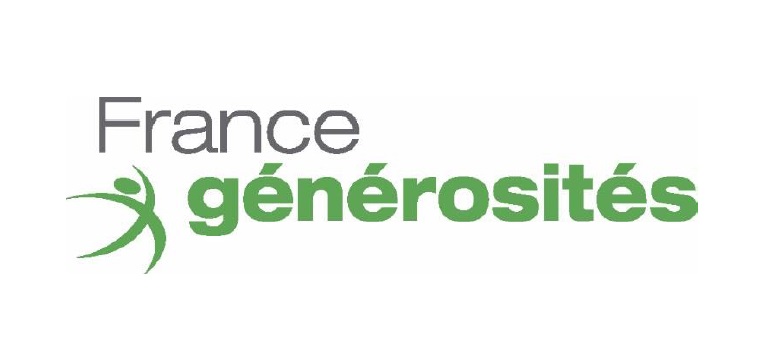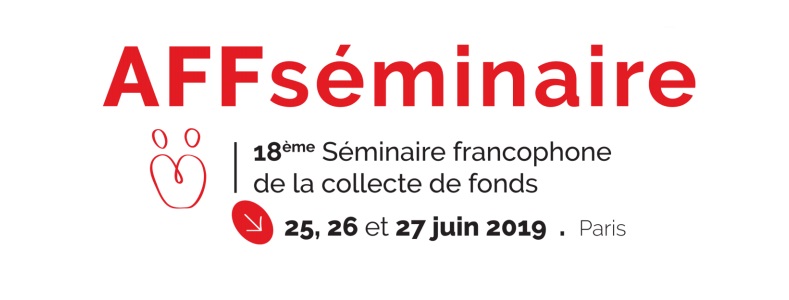Logiciels de gestion des dons: que choisir ?
 03/05/2019 - Un récent dossier publié par l'éditeur britannique Charity Digital propose d'intéressantes réflexions concernant les critères de choix à privilégier en matière de logiciels de gestion des dons.
03/05/2019 - Un récent dossier publié par l'éditeur britannique Charity Digital propose d'intéressantes réflexions concernant les critères de choix à privilégier en matière de logiciels de gestion des dons.
Parmi les applications analysées dans le cadre d'un tableau comparatif, trois solutions sont actuellement utilisées par des associations belges: Salesforce, Microsoft Dynamics et CIVI CRM.
Lien: Charity Digital - 'A guide to the top CRM systems for charities (PDF)'
On recommandera volontiers l'inscription gratuite à la newsletter de Charity Digital, dont le contenu rédactionnel comprend régulièrement des conseils utiles concernant diverses applications couramment utilisées par les associations belges.
Séminaire annuel de l'Association Française des Fundraisers
Paris (25-27 juin)
Le prochain séminaire annuel de l'Association Française des Fundraisers (AFF) se tiendra à Paris, du 25 au 27 juin prochain.
Cette année encore, plusieurs fundraisers belges participeront au principal rendez-vous francophone des professionnels de la collecte de fond, qui réunit quelque 600 participants.
Publics concernés
Professionnels du secteur associatif et personnes en reconversion professionnelle
Contenu du programme
De la stratégie à sa mise en œuvre au jour le jour, le séminaire annuel de l'AFF couvre les thèmes qui font le quotidien des fundraisers comme :
Mécénat et partenariat avec les entreprises - Fundraising des particuliers - Grands donateurs - Marketing direct - Legs - Transformation digitale - Cadre juridique et fiscal du fundraising.
Méthodes pédagogiques
Chaque participant établit son propre parcours en fonction de ses objectifs et de son niveau d’expertise.
Cette formation s’inscrit dans l’approche pédagogique de pair à pair, privilégiée par l’AFF : les participants apprennent à travers l’expérience des intervenants mais aussi grâce aux échanges entre participants.
Intervenants
Les intervenants sont des experts, praticiens de la collecte de fonds.
Source
Association française des Fundraisers
-> Programme et inscriptions: lien
 Fundraising: autres articles / andere artikels
Fundraising: autres articles / andere artikels
>> ACTU Internationale / Internationaal
France : vers un crash philanthropique ?
Suppression des "niches fiscales": des risques pèsent sur le mécénat français
 11/6/2019 - Le gouvernement français cherche à faire 1.4 milliard d’euros d’économies pour financer les mesures pour le pouvoir d’achat.
11/6/2019 - Le gouvernement français cherche à faire 1.4 milliard d’euros d’économies pour financer les mesures pour le pouvoir d’achat.
Il devrait faire des annonces prochainement autour des fameuses « niches fiscales ».
L’une des pistes envisagées sur ce sujet concerne le mécénat des entreprises alors que celui-ci contribue pour 3 milliards d’euros au financement des missions sociales de nos organisations d’intérêt général
France générosités et 5 autres organisations représentant les acteurs du secteur de la générosité se sont mobilisés pour alerter le gouvernement et le grand public sur les risques pesant sur le mécénat d’entreprise.
Dans ce cadre, un communiqué de presse fut transmis aux journalistes le mercredi 5 juin au matin.
Sources
- Communiqué de presse ‘Vers un crash philanthropique’
- Compte-rendu par France Générosités des nombreuses retombées médias de cette action de sensibilisation.
Oxfam UK: rapport final de la Charity Commission
 'We must be less fearful of learning from failure'
'We must be less fearful of learning from failure'
12/06/2019 La presse britannique a consacré une large couverture aux conclusions que la Charity Commission vient de publier dans le cadre de l’enquête concernant la responsabilité d’Oxfam UK en matière de prévention d’abus sexuels perpétrés par son personnel et des bénévoles de l’organisation.
L'enquête de la Charity Commission, motivée initialement par divers cas avérés d'abus à l'initiative d'une équipe d'Oxfam basée en Haïti, s'est étendue à d'autres secteurs d'intervention de l'ONG.
Des manquements graves ont ainsi été constatés au plan du screening du personnel et des bénévoles travaillant dans le réseau des magasins Oxfam, au Royaume-Uni.
Les premières réactions des organisations représentatives du secteur se veulent constructives: 'We must be less fearful of learning from failure'.
Pour plus d’infos:
- Civil Society (12/6/2019) – ‘Sector reaction to Oxfam report: 'We must be less fearful of learning from failure'
- The Times (12/6/2019) - ‘Oxfam scandal: four lessons to stop this happening again’
(by Helen Evans, Oxfam’s former head of safeguarding) - UK Government Publications: 'Oxfam GB: Summary of Inquiry findings and conclusions'
-> Précédent article sur ce thème: 'Comportement inadéquat de collaborateurs d'Oxfam (suite)'
Le Royaume-Uni en panne de générosité: pourquoi ?
L'enquête UK Giving 2019 suscite de nombreux commentaires
23/05/2019 - La dernière édition de l'enquête UK Giving, produit à l'initiative de l'Institute of Fundraising établit notamment que Royaume-Uni est confronté à une diminution du pourcentage de donateurs, qui est passé en trois ans de 61% à 57%.
-> Lire: 'U.K.: steadily decline of the proportion of donors'
Ces résultats ont fait l'objet de commentaires en sens divers, tant dans la presse qu'à l'initiative de plusieurs experts indépendants.
Fidélisation est plus efficace, prospection plus risquée ?
 David Fluskey, conseiller à l'Institute of Fundraising estime que les résultats du rapport UK Giving reflètent une tendance de fond qu'on aurait tort de négliger.
David Fluskey, conseiller à l'Institute of Fundraising estime que les résultats du rapport UK Giving reflètent une tendance de fond qu'on aurait tort de négliger.
Il rappelle que s'il y a diminution singificative du nombre de notateurs, il convient d'ajouter que le montant total des dons reste inchangé, ce qui implique que le montant moyen des contributions par donateur est en augmentation.
David Fluskey juge trop facile d'attribuer ces résultats, comme le font différents médias britanniques, uniquement à une baisse de confiance du public.
Il note que les plus récentes enquêtes indiquent que les donateurs semblent avoir été moins souvent sollicités au cours des douze derniers mois, peut-être pour partie à cause de la nouvelle réglementation RGPD.
Les acteurs de la collecte semblent par ailleurs plus attentifs à soigner la fidélisation de leurs sympathisants, dans une période où les stratégies de prospection de nouveaux donateurs deviennent à la fois plus coûteuses et moins productives.
David Fluskey pointe par ailleurs diverses tendances positives, tel l'augmentation des contributions issues des legs, la bonne santé du 'community fundraisisng' et les développements à venir en matière de collecte de fonds digitale.
La collecte de fonds est concurrencée par d'autres formes d'engagement
Pour Karl Winding (NCVO) l'introduction de la réglementation RGPD a amené nombre d'associations à assainir en profondeur leurs fichiers de donateurs.
Ce travail a contribué à diminuer le nombre ou la fréquence des mailings.
D'autres facteurs, telle la mise en faillite de plusieurs agences de télémarketing, ont également contribué à diminuer le nombre de sollicitations au cours de l'année 2018.
Mais il il importe de tenir également compte de facteurs d'ordre structurel.
Le conseiller de la NCVO constate que la collecte de dons stagne alors que le marché des biens et services durables ou équitables bénéficie d'une forte croissance.
Cela signifie concrtement que beaucoup de britanniques choisissent désormais d'exprimer leur engagement solidaire au travers d'autres canaux que le don caritatif.
De même les plateformes de crowdfunding permettent également aux britanniques de gérer directement leur philanthropie sans plus faire appel au rôle intermédiaire des associations caritatives.
Karl Winding note enfin que le mouvement philanthropique ne fait plus l'unanimité dans le monde anglo-saxon, du fait notamment de l'influence disproportionnée exercée certains grands philanthropes, essentiellement américains.
Sources:
- The Times ( 07/05/2019) - 'The Times view on the loss of trust in charities: Give Generously'
- The Guardian (07/05/2019) - 'Fewer Britons donate to charities after scandals erode trust'
- Civil Society (08/05/2019) - David Fluskey: 'Why fewer people are giving to charity and what we can do about it'
- NCVO (07/05/2019) - Karl Winding: 'Are fewer people supporting charities?'





